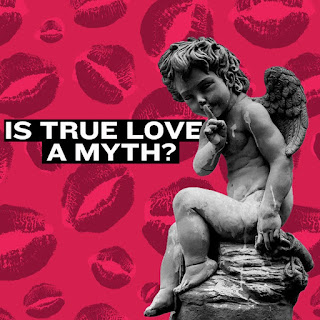The Intelligence Squared U.S. Debates podcast is funded and produced by a non-partisan, non-profit organization, Intelligence Squared U.S., which was founded in 2006 to address a fundamental problem in America: the extreme polarization of our nation and our politics. Their mission is to restore critical thinking, facts, reason, and civility to American public discourse. The award-winning debate series reaches millions of viewers and listeners through multi-platform distribution, including radio, live streaming, podcasts, interactive digital content, and on-demand apps on Roku and Apple TV.
With more than 200 debates and counting, Intelligence Squared U.S. has encouraged the public to "think twice" on a wide range of provocative topics. Author and ABC News correspondent John Donvan has moderated IQ2US since 2008.
In the latest episode of the Intelligence Squared U.S. podcast, two scientists debate the question, "Is True Love a Myth?" The concept has a nice ring to it, but is it actually driven by our biological underpinnings? Or is it a myth that harms what could be more realistic and healthy expectations of relationships?
Arguing that it is real is Helen Fisher, biological anthropologist who is a senior research fellow at The Kinsey Institute and Chief Science Advisor to the Internet dating site Match.com.
Arguing that it is a myth is Renae Franiuk, a professor of Psychology at Aurora University whose research focuses on social psychology, to include the psychology of gender, violence against women, and romantic relationships.
Plus, sharing a bit of insight into the topic, is Daniel Jones, Editor of Modern Love at The New York Times. Jones gives host John Donvan some context to how the idea of "true love" might have changed in the last couple of years:
I feel like the pandemic has been sort of like the great humbling of the world. As it applies to people in relationships, or looking for relationships, I think there's almost been a corrective to people's idealism - and their flakiness, I guess, that had to do with having so much choice, this frenetic sense that there's always someone better out there, that can be fueled by dating apps and volume.
During the pandemic there was this overwhelming sense of isolation and restriction, and [that] your choices are limited. Your choices are limited to the [group] that you're part of or the people who are safe… I sense from the from the stories we've gotten, a new appreciation of connection, not the stratospheric expectations for romance. People had to choose, did they want to be with a person or did they want to be completely alone? It was just interesting to see, once your choices are defined as that, what becomes important to you?
Intelligence Squared U.S. Debates acts as a counter-measure to the lack of a shared reality that damages unity, collaboration and a sense of compromise.
Intelligence Squared U.S. Debates is a podcast that doesn’t take sides in political dogfights. Instead, the podcast uses facts, logic, reason, emotional intelligence and a shared vision to urge listeners to question, validate, contemplate, reflect and even see differing points of view.
In a supercharged media universe where culture wars and grievance primal therapy prevails, Intelligence Squared U.S. Debates is an oasis of objectivity in a world buffeted by extremism and burgeoning fascism.

Comments
Post a Comment
Thank You for your input and feedback. If you requested a response, we will do so as soon as possible.